Fiction
Nonfiction
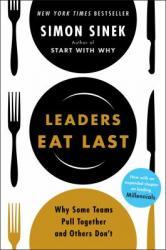
I have been looking to develop my leadership skills over the past year or so and this title was on the Sergeant Major of the Army's reading list a couple years ago. While I feel as though most leadership books tend to overlap themes and some key points, author Sinek did a great job of providing well recognized examples for each idea he attempted to convey. His references to large company names and groups helped make the ideas practical and applicable to real world situations.
I appreciated that he seemed to get the idea for his title from military members; I don't think there are many places where leadership skills exemplified and decisions are that crucial. Sinek's ideas were easy to grasp, and easily applied if you are sitting in a leadership role. I will say, not currently being in a leadership role, I found it interesting to apply what I read to the leaders I have now. There are things that I'm frustrated with that I haven't been able to put a finger on and this book conceptualized what I have been feeling. I have been able to verbalize to my
leaders some ideas and perhaps improve morale for the staff.
The version I read was the expanded version that had added chapters for the Millennial generation. I was born at the very beginning of the Millennial years, however I do not identify with that generation. I have had the opportunity to lead multigenerational groups. I have often found myself aggravated when dealing with Millennials, however this book offered some wonderful insight on how to lead them and how you might utilize the unique set of skills and passions that identify that generation.
I greatly appreciated this book and the practical spin it put on some of the ideas that I have already read about. It clarified some old ideas and offered some new. I would absolutely recommend this book for anyone who finds themselves in a leadership role.
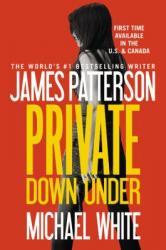
I listened to Private Down Under as an audiobook. This was the first James Patterson book I've ever read/listened to. I can't wait to delve into even more; I was instantly hooked. I finished another in less than a week. I wasn't sure what to expect, but after the main characters, a male and female who work for a private investigating firm, I anticipated somewhat of a romance. I was pleasantly surprised that was not what it was. Craig Gisto is launching "Private", an investigating firm, when almost instantly three cases land in their lap.
I was so anxious to find out how the cases unfolded that I found myself sitting in my car waiting for the end of each chapter. More than that, I dug out the CD player from the garage so I could end my evenings listening. Each case had it's own twists and turns, each with their own level of suspense. They were not able to be "solved" by the reader until the author gifted you that information. There were a few gory details, but nothing most adult readers will squirm at. The tone was pretty serious, with moments where I may have emitted an audible gasp. I truly appreciated how they had a native Australian read this book, considering the locale. The reader did a great job adjusting his accent to the characters he was speaking for. Overall, I really enjoyed this book. I am looking forward to discovering more of what Mr. Patterson has to offer.
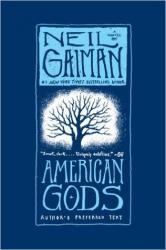
This book follows ex-convict Shadow, once he is released from prison and enters into a new job as the assistant to Mr. Wednesday (more commonly known as Odin). Shadow doesn’t believe the fact that he is surrounded by gods, until Mr. Wednesday introduces him to god and god and shows him undeniable evidence. Mr. Wednesday is using Shadow as a mean of amassing the older, more forgotten gods into an army ready to retaliate against the new gods of the modern era. Technology, for example, is depicted as a god, but a socially removed and young god. This has been one of my absolute favorite books to read because of how it explores the change in worshiping from ancient gods and folklore into technology, media, and trends. The book is so complicated because it brings together ancient gods of cultures from around the world.
Each have different origins and purposes, and the role Shadow plays as the representation of humanity only intensifies the surreal feeling of the book.
I liked how I was able to relate to Shadow, as bring subject to the controlling factors of society, whether they be demanding gods or media outlets. I appreciated how well-researched the cultures written about were, and how there isn't a page in the book that doesn’t bring about another point to think about, something like morality or control. The book is also very entertaining and a fascinating storyline, and I would highly recommend it to any reader. I would give it five out of five stars.
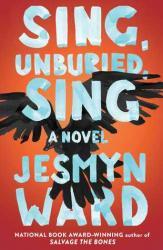
This book is a mix of old folklore and spirituality, racism, social stereotypes, and empathy. It revolves around a family who face racism from the white grandfather of black children. The main characters are the mother, the son, and the baby daughter, who relies more on her brother than her own mom. Her mother spends more time doing drugs than raising her kids, so the grandparents have generally brought them up. Their father, a white drug dealer, is in prison, and the book follows the family’s road trip to go and pick him up. The novel switches between a modern setting, and the prison but from the 1940s, when the black grandfather was in jail. The story analyzes the reasons behind a broken family, and brings to light the continued racism in the southern USA. However, the spirituality plays a role because another character who joins the road trip is the mother’s dead brother, who appears as a ghost and brings up the idea of family. I enjoyed this book very much because of its complexity. The book can be a slow read, as all the scenery and characters are continually described in precise detail, but the author leaves no point unexplained. The meanings behind the plot are subtle, and the supernatural aspect is a good point of interest to tie together the past and the present. I loved the honesty behind the author’s writing, and I enjoyed the beautiful writing style. I would highly recommend this book, and would give it four out of five stars.
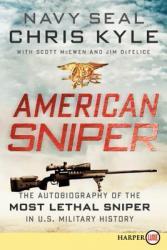
American Sniper is the biography of the most lethal sniper in the United States military, who was apart of the United States Navy SEALs. The biography encompasses the story of Chris Kyle, to which it describes the story of both his military tours and his own personal/civilian life. This autobiography adheres towards the intriguing events that Kyle experienced within his life.
American Sniper was a very well written book that did a great job describing the embellishments and challenges that Kyle faced, when he was a SEAL or just a civilian. Personally, the book is one of the best that surpasses many other titles that I have read. I highly recommend it to other readers.
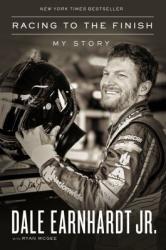
Many know the name Dale Earnhardt Jr. but you don’t need be a fan of his or even a race fan to enjoy (or listening to, as I did) this book. It’s an eye opening perspective of cause, effect, and recovery from concussions of a driver who suffered many in his career. Athletes of all ages and every contact sport and our military are suffering concussions every day and are struggling with the symptoms. Mr. Earnhardt frankly discusses his stubbornness over admitting he had an issue and the inner struggle between his career, family, fans and team. He brings up the advances in concussion recovery over a time and the advances in the therapies to aid in the recovery.

The Scarlet Pimpernel is a wonderful book that incorporates the idealism of the French Revolution to create a unique setting. The historical adventure story is filled with a great blend of suspense, thrills, and romance. The developments included in the story are well-executed and the characters are all full of life. The overarching plot is also intriguing and will captivate the reader until the end of the book. Overall, I would recommend this book to anyone, especially those who like a bit a history.
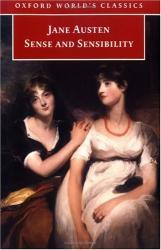
In the classic Jane Austen novel "Sense & Sensibility", three sisters -- Elinor, Marianne, and Margaret -- face a new life after their father dies and they are forced to move to a new home. The sisters' relationships are tested as they balance emotional turmoil, suitors, and new beginnings. I loved this book -- partly because Austen's writing style is straightforward and far easier to read than most classics -- and because of how much time Austen took to masterfully develop her characters. The relationship between Elinor (who is sensible and logical) and her sister Marianne (who is emotional and has a love for drama) is deep and complicated. As the story progresses, we see different sides of the sisters as they struggle to grow in their new environment. I absolutely loved this story. Honestly, there isn't a single negative thing I can say about it. I would highly recommend it to someone who doesn't like classic novels, because I think "Sense & Sensibility" could definitely change their minds.
Grade: 12
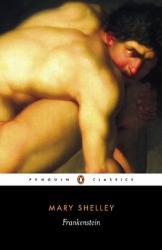
In Mary Shelley's classic novel "Frankenstein", a young ambitious scientist decides to play God and, in the process, creates a monster. As the monster struggles with self-identity and the meaning of his life, he enacts revenge on his creator by destroying everything he loves. Any time you dive into a classic novel, it can be difficult to keep your expectations from getting too high. This novel met pretty much all of mine -- the rich character development of both Frankenstein and the monster, the excellent use of suspense and foreboding to create tension, and the well-paced action. There were definitely some slow parts, but that's mostly because the writing style has changed so much between then and now. However, the multiple perspectives helped keep things moving when they began to slow down. I really enjoyed this novel but I had one fairly big complaint: the ending felt rushed. I felt that we were building up to a much more action-packed ending, but things fizzle out very quickly and the novel ends on a strangely unsatisfying note. I think that there could've been more time spent creating a strong conclusion to a really strong story. Besides that, this classic is excellent and definitely worth a read.
Grade: 12

As a John Cleese fan, it was fun to be able to learn of another of his endeavors - serving as a Professor at Large at Cornell for 10 years! The texts in the book are a collection of some of his lectures over the years. They, of course, elaborate on many of his performance experiences but they also provide a broader view of his other interests.
All the Monty Python group are intelligent and creative, so it is no surprise that Cleese's intellect has been engaged on many fronts over the years. He is also much like his character in comedy in not suffering fools gladly or otherwise. I was pleased to note that he became quite involved in many different schools of learning while on the Cornell campus, and contributed to the thinking of both students and staff.
There is some repetition of topic, but as the student body would experience a turnover over the years, I would expect that important topics would emerge again anyway.
This was a fun and informative read. Since it was a series of lectures, it was easy to pick up and put down without losing the gist of things.
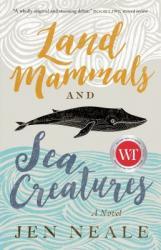
I believe there are many factors that will determine whether or not a reader enjoys this book. It is a first novel by this author and the reader's age may impact their willingness to immerse themselves in an environment, however fictional, that is, from the outset, purposefully created to be offensive to one's sensory organs. This is, and continues to be, crucial to both the plot of the book and an underlying message.
The characters are realistic and set in what is generally considered to be a gorgeous part of Canada's Pacific Coast, British Columbia. But the events of the book usually overwhelm one's ability to bask in that beauty for long. While the sadness of the characters' lives and the ugliness of their relationships with their environment are not without purpose, it is a tough read.
Including motherlessness, PTSD, isolation, human destruction of the environment and suicide in one book rarely makes for light reading. But it would be helpful to the reader to envelope those topics in a book that provides some wisdom or hope for progress on more than one front.
The author seems to be presenting some positive rationales for suicide, but these characters are all so far gone by the time the story begins that it is just another false glimmer to think that the outcome is anything more than part of the death all around them.
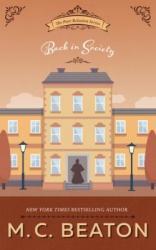
Mildly entertaining, The "Poor Relations" Series isn't nearly as suspenseful, nor well-written as Marion Chesney's popular "Hamish MacBeth" Series, nor as interesting and comical as the feisty Agatha Raisin of the "The Agatha Raisin Series". With the exception of a few of the characters, such as the loathsome, ill-mannered Sir Philip and the interesting Lady Fortescue and Harriet, the former cook and now the Duchess of Rowcester, the heroine of this book, Lady Jane is a Lilly-livered character who although young, cannot stand up for herself in any situation. She is so unlike the sharp-tongued, independent, although vulnerable Agatha Raisin that her character is seems like a "doormat". Unlike the first book of this series "The Poor Relations", which heralded the strength of character, independence and backbone of each character, the plot of this book seems contrived and somewhat unbelievable, perhaps because no young woman in this day and age would be as weak as it's "heroine" Lady Jane. This book was written in '94, under the pseudonym of Marion Chesney, perhaps when M.C. Beaton's was developing her writing style. However, in this day of strong, independent women, the Cinderella story of being rescued by Prince Charming this hackneyed story seems boring and mundane.
The excellent writing of M.C. Beaton seems to be absent in this novel, and the "damsel's in distress" theme of "Back in Society" is dated and uninteresting!
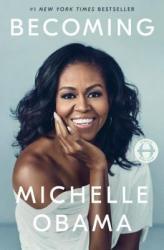
In Becoming, former First Lady Michelle Obama shares the journey of her humble roots growing up in the South Side of Chicago to becoming First Lady of the United States. The book paints a picture of a woman who has struggled with the question "Am I good enough?" for much of her life, but has persevered through her doubts. It also gives a picture of Barack Obama's political aspirations and rise to the Presidency. Even for those who disagree with Obama's politics, the book depicts the portrait of a man who entered politics because he truly desired and believed he could make the US a better place to live, and shows both Barack & Michelle Obama's commitment to public service. In that sense, it prompts the reader to stop & consider, what are my core values, and what am I fighting for to make the world a better place? It's an inspiring read when considered through this lens.
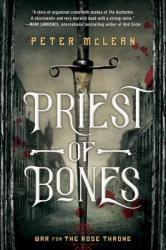
It took me a good long time to read this book. I started reading it and I
would stop, then I’d try to start it again. Then I decided to just buckle
down and read the book. I have to say it was a pretty darn good book.
I wasn’t expecting it to be the first in a series, but as I started coming
closer and closer to the end, I realized that it may well be part of a series
– and I was right, it is. The book takes you on a journey of what happens
in a medieval style world when someone comes home from war and realizes that
a new war is brewing and it’s starting in his own city. The book is rather
slow to start and at times doesn’t make sense, but anything that doesn’t
make sense at the time will be clarified later in the book.
This particular novel is written memoir style – the narrator refers to his
having written things which is an interesting concept. Usually you don’t
see novels written as memoirs with the narrator stating that he or she had
written something earlier. I fully expect that if this series were to become
movies, that you’d find an old, wizened man at the end closing a notebook
in which he’d written the entire sordid tale.
The book was well written and I have to admit, although it isn’t normally
my type of book, I was into it. The characters were developed as much as they
needed to be and the ones that aren’t, well, there’s a reason for it.
Some of them don’t need it, some of them don’t need it right now. Read
the book and you’ll see.
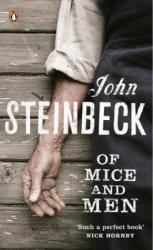
Of Mice and Men is a true classic. It is a gripping tale of friendship and tragedy that takes place during the Great Depression. Lennie and George are very well-developed characters and their story of fulfilling their American Dream is one that you won't want to put down. Of Mice and Men is a surprisingly short read, but its story is enormous. While the book does include some controversial topics, it is still a very good read that I would recommend to anyone.
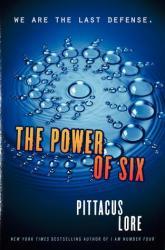
The sequel to I am Number Four is just as thrilling and action packed as the first. John, Sam, and Six set out as fugitives and work to find the others as we meet Seven. Seven is also known as Marina and lives in a convent/orphanage in Spain while she convinces her Cepan to rejoin the fight and develops her legacies. Complete with numerous battles, close escapes, incredible powers, and fun characters, The Power of Six is an excellent read for any middle or high schoolers.
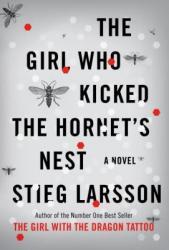
Now that I’ve finished the third book in this series, I realize it falls into the “trilogy conundrum” of having a strong, standalone first part, followed by two sequels that rely on each other to finish out the story. Heck, The Girl Who Kicked the Hornet’s Nest should have just been Part 3 of The Girl with the Dragon Tattoo since it completed the story arc started back in book one. I had my suspicions this book would continue from the exact moment where The Girl Who Played with Fire ended. After all, there were a ton of loose ends, and the story ended abruptly.
Part of my issue with this book was that it was primarily tasked with tying up all the subplots from the first two books. However, it still felt like it needed to spend time on new storylines that didn’t add much to the overall plot and were only there because the main character wasn’t able to do anything interesting. I also didn’t particularly like how some of these story elements concluded, as they felt unfulfilling (the resolution of the conflict with Lisbeth’s father stands out in particular). Overall, these two qualms made the book drag on longer than I think it should have.
There were still some positive elements in this book, including the trial of Lisbeth Salander. In fact, this coup de grace was by far the most entertaining section of the entire trilogy. I also appreciated the tension created early on when Lisbeth was in the hospital, as well as the action in the Epilogue that tied up the very last loose end of the trilogy. In the end, I still think this trilogy was a good read. It’s just that its final volume
felt a little bloated and distracted at times.
A mostly satisfying conclusion to the original Millennium series, I give The Girl Who Kicked the Hornet’s Nest 3.0 stars out of 5.
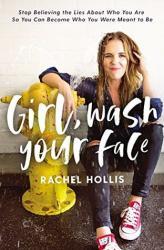
This book wasn't bad. I finished it. I even got two takeaways: Don't compare yourself to others, and don't worry about weight so much as being in shape (paraphrased). However, I did not agree with her assessment of people using prescribed drugs for anxiety, depression, and sleep as being unnecessary. She said it twice in the book. Also, she holds herself up as the standard to which we should all aspire, not on purpose, it was just a side effect of the book. It was okay for a rah rah book, but I wouldn't recommend it to my friends.
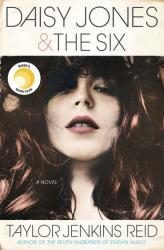
Daisy Jones & the Six is a telling of the eponymous band's tumultuous story, by the band and in interview format. Its kind of: Almost Famous -The Fleetwood Mac Story. There's drugs, sex (some consensual), drugs, rock & roll and drugs! There are a lot of drugs. But mostly, there's an intensely readable character study about a bunch of talented young people who couldn't get out of their own way.
At the recommendation of a friend and colleague, I read one of Reid's other books, the Seven Husbands of Evelyn Hugo and I adored it. When I was approved for Reid's newest on Netgalley, I was pretty excited and rightly so: this book did not let me down. It truly is a book about complex characters told against the gritty, adrenaline filled background of rock & roll in the 70s. I sometimes felt I was almost at the concert, waiting the wings, electrified. The atmosphere was to die for. But again, the characters are the whole thing. Daisy and Billy, our two main characters, were both interesting to read for their own reasons, but my favorite by far was Karen. I did a fair amount of highlighting in this book, and most of those lines belonged to Karen (the rest, Daisy). This book is just dying to be made into a movie (a google search reveals, that, even better - its been optioned as a tv mini-series on Prime! Dream casting: Jenny Lewis should play Daisy Jones. Digression over.) as the characters practically spring off the page. Really, the only downside for me was that it didn't feel new. I've read versions of this story before. But this is a great version of that story, and if you like a good tortured romance, or have felt moved by music, I think this book will make you feel something. I did. 4 stars - I really liked it.
Thanks to Netgalley and Ballentine Books for the advance copy, which I received in exchange for an honest review. Daisy Jones & the Six is available on 05 March, but you can put your copy on hold today.
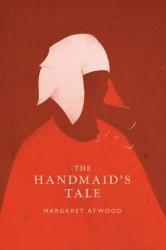
This book is old school dystopian literature. Atwood nails it. It's likely the best dystopian novel I have ever read.
Offred is a handmaid, a woman set aside for breeding purposes. Her only desire is to survive, but her memories push their way up into her mind. She had a husband and a child and they are gone. What broke my heart were the memories of her beloved child. It's so softly touched upon that it shows itself as a raw wound that she can barely handle.
Well told and powerful, I give this book 5 stars.


